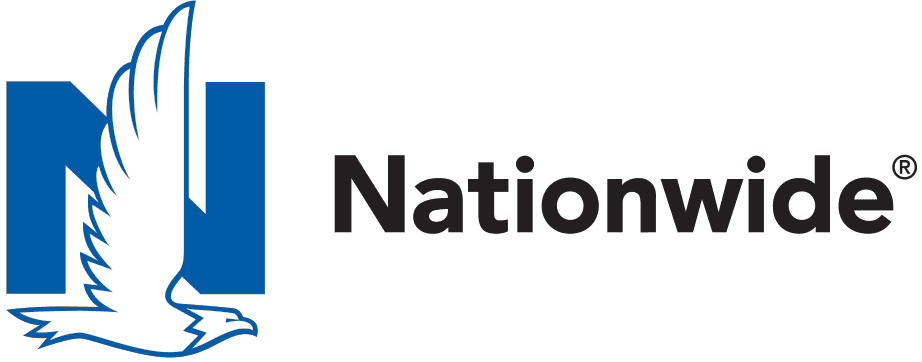
Related Topics
Retirement is a turning point in our lives—a time to shift away from the daily grind and focus more on who we are and the things we enjoy. Yet despite the promise of freedom and relaxation, many older adults have uncertainty about the financial aspects of leaving the workforce.
Below, we talk about some common misconceptions about retirement finances and pair them with realistic, practical advice. Knowing the facts can help you refine your retirement planning and set yourself up for a secure future.
Myth #1: Your retirement savings will last as long as you do.
Americans are living longer, thanks to improvements in health care, living conditions, and lifestyles. In fact, according to the Social Security Administration, roughly 1 out of every 3 65-year-olds today will live until at least age 90, while 1 in 7 will live to age 95 or older.1 That means your retirement could span several decades.
Increased longevity means more older adults face the risk of outliving their retirement savings. And while Social Security benefits can help, they’re not enough for most retirees to live on.
Planning for a longer retirement horizon—by focusing on protected retirement options such as annuities, for example—can help ensure you'll have enough resources to support yourself for as long as you live.
Myth #2: Your living costs will be less in retirement.
You might think your basic expenses will drop significantly in retirement. But that’s not necessarily true. Some costs may decrease; for instance, if you pay off your mortgage and/or car loans or you’re no longer supporting children. But other areas of spending may increase. Consider the following:
- What's the biggest threat to retirement security? In a survey of 1,000 U.S. consumers age 60-65, 90% said inflation. Inflation can impact things like groceries, utilities, and gas, and zap the purchasing power of your retirement savings over time. According to the Nationwide Retirement Institute Peak Retirement Survey3, current retirees said they spend more than half of their retirement income (53%) on basic expenses (non-retired participants said they expect to spend 42%). What was retirees’ advice to their still-working peers? You’ll likely need more money than you think.
- Unexpected expenses such as a medical crisis or emergency home repair can put a major dent in your retirement budget.
- Discretionary spending can change in retirement, too. For example, you may decide to take those vacations you’ve always talked about or make long-awaited improvements to your home.
- You may qualify for fewer tax breaks once you no longer have dependents, or you pay off your mortgage. And keep in mind that tax rates (e.g., property tax) can rise over the years.
When planning for retirement, it's important to track your spending now—and consider what additional expenses you may face down the road.
Myth #3: Social Security will cover all your expenses.
As a working adult, you pay into Social Security for many years. So it should keep you afloat when you retire, right? Not quite. For the average person who retires at age 65, Social Security benefits only replace about 37% of past earnings.2 More than 1 in 3 retirees receive less in benefits than they expected to when working.3
Also, without action from Congress, Social Security beneficiaries could see a benefit cut of roughly 23% starting in 2033. Nearly three-quarters of current and future retirees said such a cut would impact their retirement "a lot."3
Claiming Social Security at age 70 allows you to receive the maximum monthly payment—so generally, it’s a good idea to wait as long as possible to draw benefits. It’s also important to have supplemental retirement savings and income sources to help fill in the gaps.
Myth #4: Medicare will cover all your medical bills for free.
Many older adults dangerously underestimate their health care expenses in retirement. Specifically, there’s a notion that Medicare provides complete health care coverage with no out-of-pocket costs. But that’s not the reality.
Whether you choose Original Medicare (Parts A & B) or Medicare Advantage, you’ll be responsible for certain costs such as premiums, deductibles, and co-payments. And these costs can add up quickly. More than half of participants (59%) in the Peak Retirement Survey said they lack confidence in their ability to pay for health care expenses as they age.
Strategies that can help prevent health care expenses from draining your retirement savings include:
- Budgeting for medical-related expenses you can predict
- Contributing to a health savings account (HSA)
- Purchasing long-term care insurance
- Choosing the right Medicare plan for your needs and lifestyle
Myth #5: You can work for as long as you want to.
“It’s natural to think you have control over how long you’ll stay in the workforce, but sometimes life has other plans,” said Kristi Rodriguez, Senior Vice President of the Nationwide Retirement Institute. “Health issues, caregiving duties, and job market volatility can all impact the ability to work in your later years.”
Nearly 1 in 5 currently retired Peak Retirement Survey participants warned future retirees to not assume they can work for as long as they’d like. And 64% said they stopped working earlier than planned.
The bottom line? Don’t bank on working indefinitely; if you don’t have enough money and cannot work, your only option will be to spend less. Adopting a “hope for the best, plan for the worst” mindset in retirement planning can help you ensure you’re covered—even if you retire earlier than expected.
Myth #6: You don’t need help with retirement planning.
It can be tempting to dive head-first into your own retirement planning. But this is a process with many “moving parts.” It’s a complex task that requires careful consideration and ongoing adjustment, which is why expert guidance can be a plus.
For additional help in planning your retirement, consider:
- Checking with your plan provider: If you have an employer-sponsored retirement plan like a 401(k) or SIMPLE IRA, ask what planning resources, tools, and/or experts are available to assist you.
- Talking to a professional: A financial planner has the expertise to help you navigate the retirement planning journey, considering factors like investment strategies, tax considerations, and long-term objectives. They’ll work with you to develop a personalized plan tailored to your needs and situation, ensuring you’re on track to your goals. It’s a partnership that can pay off: In Nationwide's Peak Retirement Survey, 86% of participants said working with a financial advisor on their retirement plan improved their readiness for retirement.3
Take proactive steps to shape the retirement you want
Exiting the workforce is a major life transition, and the way you prepare for it will have a big impact on your quality of life. Lessons learned from recent retirees highlight the importance of understanding the financial realities of retirement. Getting all the facts—and seeking professional advice and resources to guide you—can help you plan wisely for your next chapter.
“As we enter a period of peak retirement in our country, many retirees will face harsh reality checks if they missed opportunities to prepare for this moment,” said John Carter, President and COO of Nationwide Financial.
There is reason to be optimistic, but retirement savers need to act now to ensure success,” Carter continued.
This content on financial myths in retirement was developed in partnership with Nationwide (NFM-23804AO). Learn more about the variety of solutions that can help add protected monthly income to your portfolio.
Sources
1. Social Security Administration. When to Start Receiving Retirement Benefits. Found on the internet at https://www.ssa.gov/pubs/EN-05-10147.pdf
2. Center on Budget and Policy Priorities. Top Ten Facts About Social Security. Found on the internet at https://www.cbpp.org/sites/default/files/atoms/files/8-8-16socsec.pdf
3. Nationwide Peak Retirement Survey Report (PPT). December 2023.




